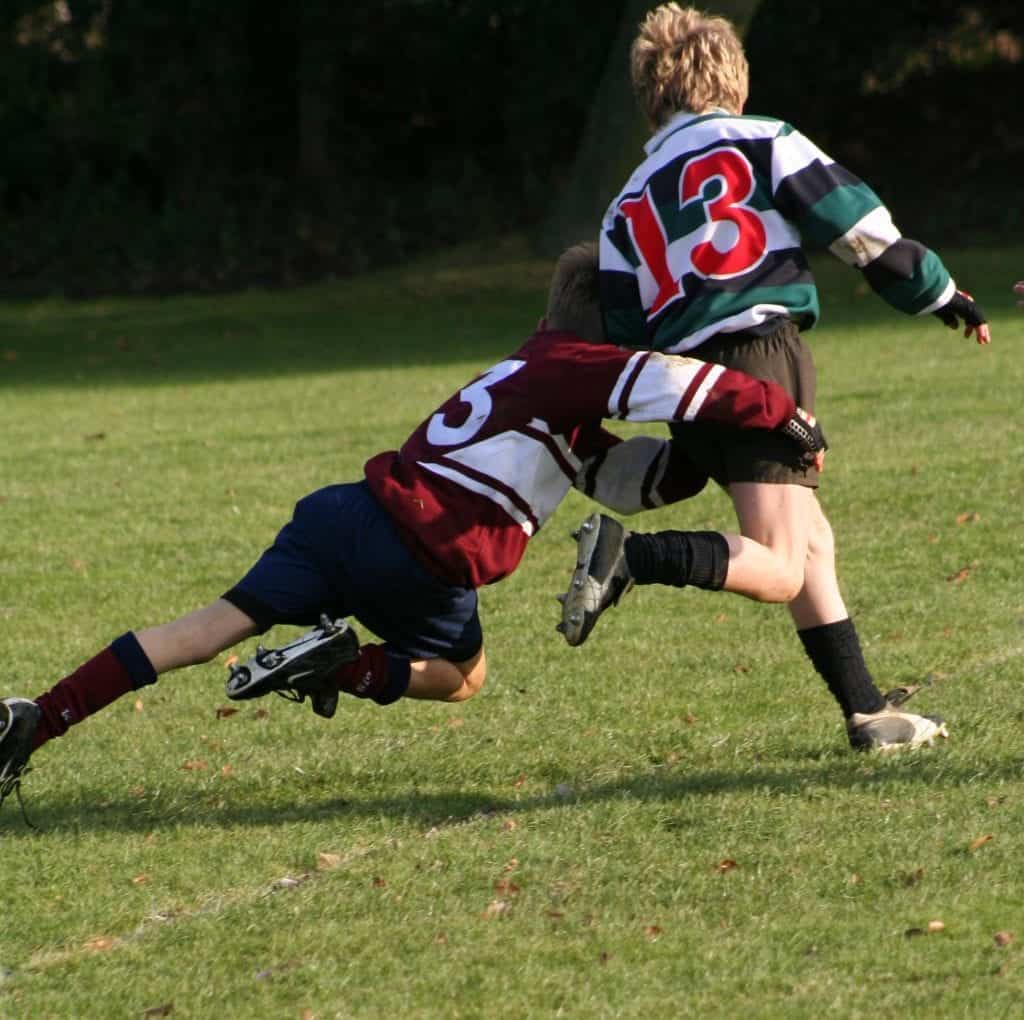With the RBS Six Nations Championship in full flow, the contentious issue of rugby and injury is back in the spotlight. More than 70 doctors and health experts have penned an open letter to the government urging a ban on tackling in school rugby and a move to touch and non-contact versions of the game in order to prevent serious injury among under-18s.
Academics and health professionals are concerned about the number of injuries that occur during collision or contact, such as; concussions, bone breaks, spinal injuries, dislocations and ligament tears amongst other injuries, including those with more long-term impacts.
Being a highly charged topic there are people on both sides of the argument who firmly believe they are right. Those who want tackling banned are worried about child welfare, especially as the government plans to increase participation in school rugby, which is a compulsory subject in manner secondary schools. The signatories of the letter also quoted the United Nations Convention on the Rights of the Child, saying the governments have a duty to protect children from injury risk.
Those on the other side of the coin think banning tackling will create more problems when the players get to the age of 18 and are ill-prepared for adult rugby which could create more serious injuries. They say the way forward is to manage the risks by teaching proper tackling techniques, improving concussion awareness and how head injuries are treated (which have improved a lot recently) and allowing children to play this disciplined and respectful game in a safe manner.
Managing the Risks for the Future
It’s clear that all sport carries a risk of injury, some more serious than others, but there’s always an element of risk management. In football, you have the risk of twists, tears and breaks with Luke Shaw’s horrific leg break at the back end of last year perhaps being one of the most serious injuries. In recent weeks many players have been wearing protective masks after suffering facial fractures; Harry Kane and Diego Costa to name just two. The injuries associated with rugby are similar but do have an added element of more serious injury, especially for head and spinal injuries.
Last August a 23-year-old female player suffered a fatal injury during a game which resulted in a stroke. Players have been quick to defend the sport saying all players are aware of the risks. A month before this a cricket player died after being struck in the chest with a ball. There is absolutely no doubt that such accidents are tragic but they are few and far between; in comparison cycling accidents for under 16s result in over 1,300 deaths or serious injuries in the UK each year. The answer is therefore not to ban whole sports or vital elements of the sports but to minimise the risks and make them as safe as possible.
There are also other things you can put in place to minimise the risks and costs for your family if the ‘what if’ scenario does occur. Lasting Powers of Attorney are often associated with the elderly amongst us, but this is a misconception. This powerful and important legal document can give another individual the legal authority to look after your property and financial affairs and/or health and welfare in the event that you lose your physical or mental ability no matter what your age.
What happens if I’ve not made an LPA?
If you don’t make an LPA but a tragic accident, illness or mental health problem renders you unable or incapable of making decisions for yourself, then, contrary to popular belief, your next of kin do not have the automatic authority to deal with your affairs. They may have to apply to the Court of Protection for a Deputyship order which is an order from the Court giving someone else authority to look after your affairs on your behalf.
Obtaining a Deputyship order is much more timely and expensive than making a Lasting Power of Attorney. Our advice is to make a Lasting Power of Attorney now while you still have the mental capacity to do so. They are far less time-consuming, expensive, intrusive and restrictive at a time when your or a loved one’s finances might need immediate attention.
To discuss making an LPA then please give our expert Wills, Trusts and Probate team a call at 0161 930 5151 or e-mail actonit@gorvins.com.

